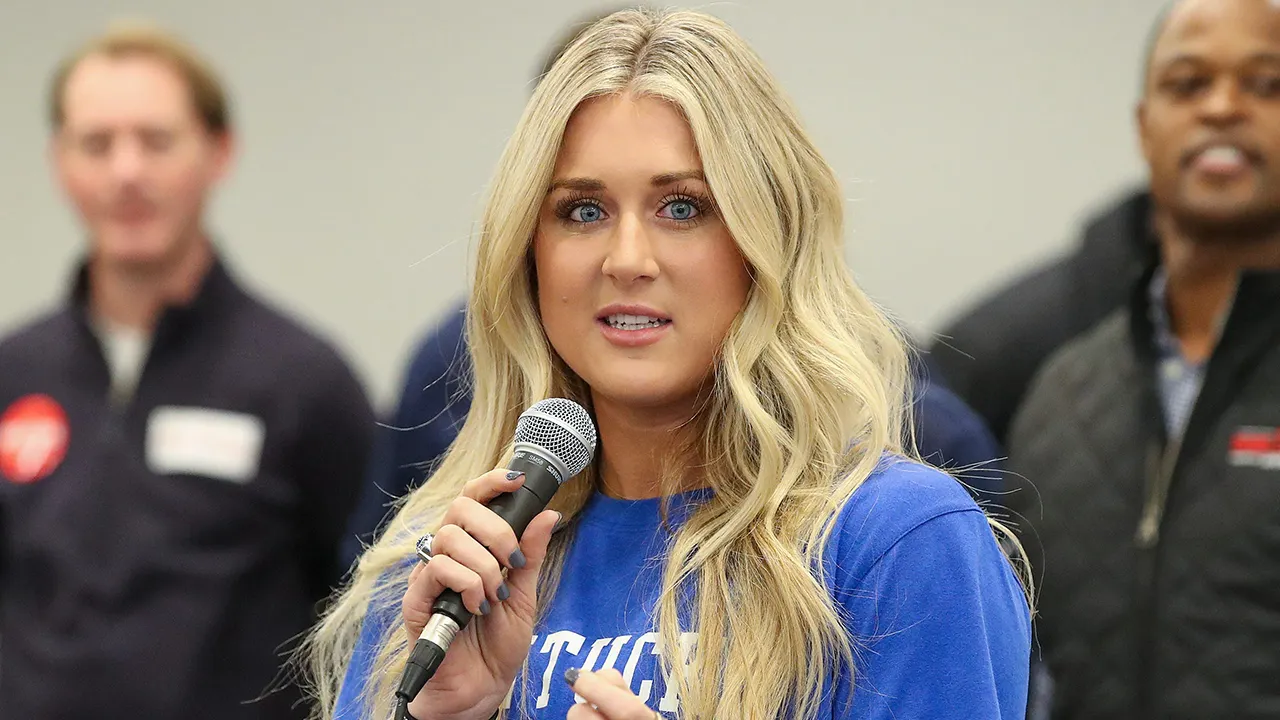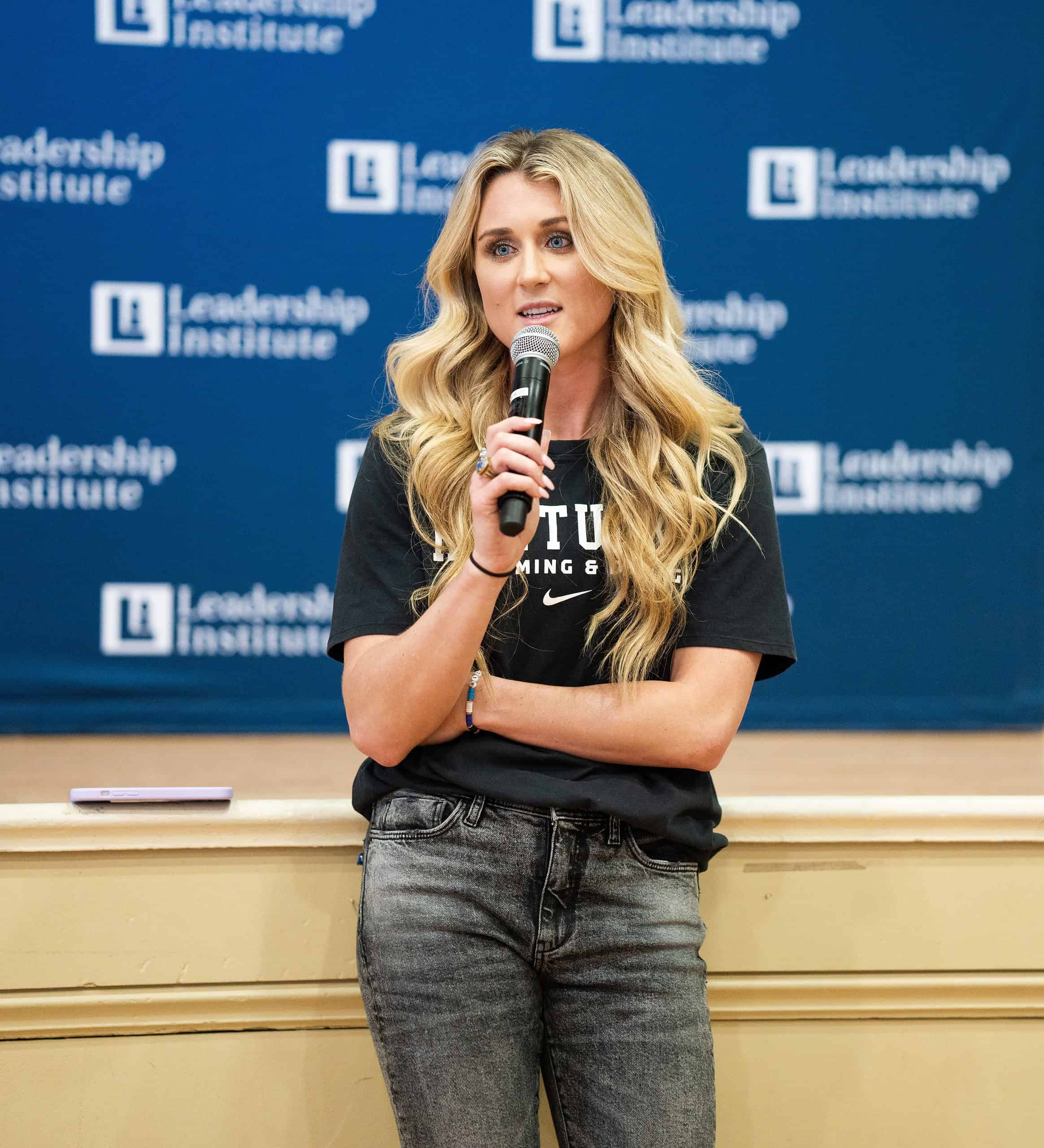In a landmark decision heralded as a significant victory for fairness in collegiate sports, Riley Gaines has won a groundbreaking $50 million lawsuit against the National Collegiate Athletic Association (NCAA).
Gaines, a former University of Kentucky swimming champion, had accused the NCAA of failing to uphold fairness in women’s sports by allowing transgender swimmer Lia Thomas to compete, an issue that sparked intense debate nationwide.
The decision, delivered on Friday by the U.S. District Court in Indianapolis, marked a profound turning point in ongoing discussions surrounding gender identity, inclusion policies, and fairness in competitive athletics.
Gaines’ case has garnered widespread media attention and generated heated debates across the sports community, raising critical questions about equality, safety, and fairness in female athletics.
“Today is not only a victory for me but for women athletes everywhere who have been afraid to speak out,” Gaines said in an emotional press conference shortly after the ruling. “I fought for fairness, not just for myself, but for every young girl who dreams of competing on a level playing field.”

The lawsuit originated from events during the 2022 NCAA Swimming Championships, where Gaines, a decorated athlete, competed directly against Lia Thomas, a transgender athlete from the University of Pennsylvania.
Thomas, who transitioned from male to female, dominated events traditionally won by female athletes, sparking intense controversy. Gaines claimed that by allowing Thomas to compete, the NCAA violated Title IX, a federal law designed to prevent discrimination based on sex in educational programs.
In her lawsuit, Gaines argued that the NCAA’s policies unfairly disadvantaged biological female athletes. Legal documents highlighted the physical advantages gained from male puberty that, according to expert testimony, cannot be entirely mitigated even after hormone treatments.
Gaines’ attorneys presented extensive evidence demonstrating disparities in strength, speed, and endurance between transgender athletes who transitioned after puberty and their female counterparts.
The NCAA maintained that its policies were designed to promote inclusivity and argued that banning transgender athletes would be discriminatory.
However, the court ultimately sided with Gaines, emphasizing that competitive fairness and integrity were foundational principles the NCAA was obligated to uphold.

Judge Amanda L. Roberts, presiding over the case, stated in her written opinion, “While inclusivity is undeniably important, it cannot come at the expense of fair competition. The NCAA failed to adequately protect the rights and opportunities of female athletes, which is fundamental to Title IX.”
This ruling has significant implications for future policies in collegiate and high school athletics. It sets a legal precedent reinforcing the importance of biological sex distinctions in competitive sports, potentially influencing similar ongoing cases and prompting the NCAA and other athletic associations to reevaluate their transgender athlete policies.
Legal experts view the decision as groundbreaking, predicting a wave of similar lawsuits nationwide. Attorney and sports law expert Jennifer Price commented, “This decision sends a powerful message that while equality and inclusivity are crucial, they must be balanced with fairness. It’s likely we will see more legal challenges addressing similar issues in different sports.”
Reactions to Gaines’ victory have been polarized. Advocates for women’s sports and fairness in competition celebrated the ruling. Martina Navratilova, legendary tennis champion and outspoken advocate for women’s rights in sports, tweeted, “Justice for women’s sports! This ruling protects the integrity and fairness that every female athlete deserves.”
Conversely, transgender advocacy groups have expressed disappointment, calling the ruling a setback for transgender inclusion in athletics. “This decision marginalizes transgender athletes,” said Maya Brooks, spokesperson for Equality Sports Project. “Inclusion and fairness should coexist, and policies must evolve to reflect a more comprehensive understanding of gender identity.”

Following the decision, the NCAA issued a brief statement, expressing its disappointment and indicating plans to appeal. “The NCAA remains committed to fostering inclusivity across all sports while striving to maintain competitive fairness,” the organization stated.
The ripple effects of this ruling will likely reverberate through all levels of sports. Already, multiple athletic governing bodies are reevaluating their policies in response to the decision.
High school athletic associations, collegiate conferences, and international sports organizations face mounting pressure to clearly define fair competitive standards.
As for Gaines, she expressed hope that her legal victory would empower other athletes to speak out. “This lawsuit was never about exclusion—it was always about preserving fairness,” she reiterated.
“I encourage athletes everywhere to continue advocating for their rights. Fairness in sport matters, and our voices deserve to be heard.”
The court’s decision not only awards Gaines a historic $50 million settlement but also positions her as a prominent figure in the national conversation surrounding gender, fairness, and sports. Gaines plans to use part of the settlement to establish a foundation dedicated to protecting fairness in female athletics.
In the broader landscape, this ruling represents a seismic shift. It is likely to influence ongoing legislative and regulatory debates surrounding transgender participation in sports, marking a pivotal chapter in the evolving dialogue on gender identity, equality, and competitive fairness in athletics.



